Posts by AHN Sehong
Dai-Ichi Salon, Japan’s first comfort station
Dai-Ichi Salon(大一沙龍), Japan’s first comfort station
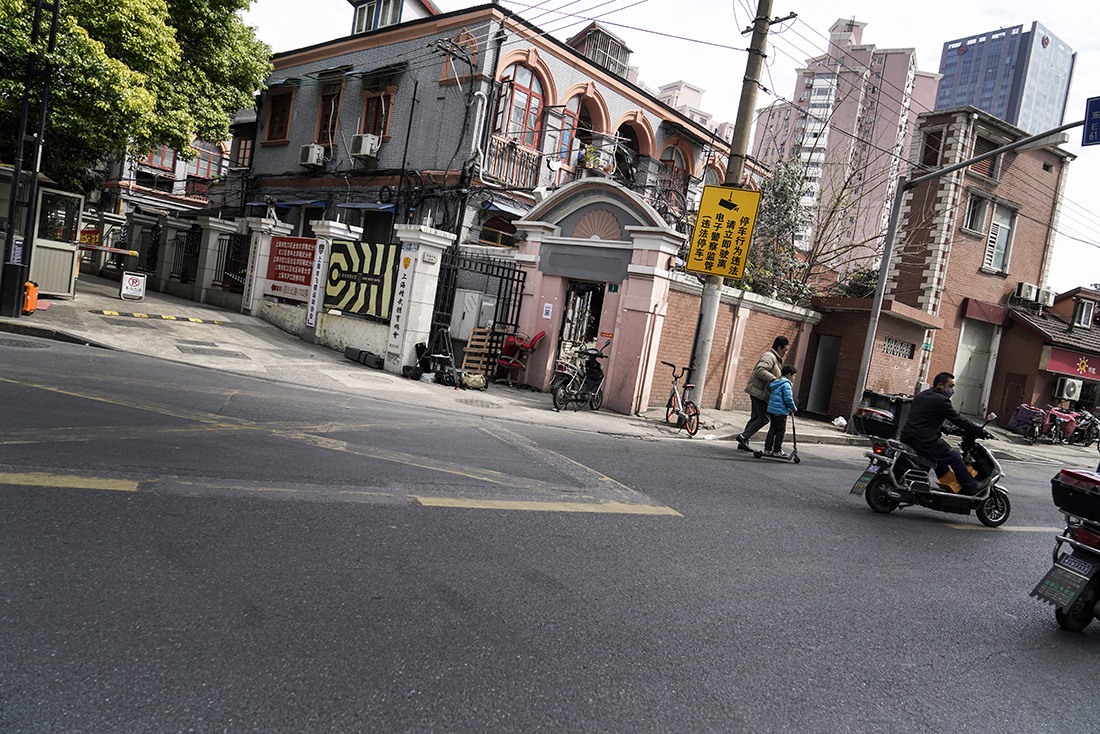
Dai-Ichi Salon, Japan’s first comfort station located in 125 Nong in Dongbaoxing. This is a military comfort station operated directly by military after remodeling restaurant in Hong Kouchi, Shanghai two months before ‘1.28 Incident’, which Japanese military conducted armed invasion to Shanghai, China on January 28, 1932.
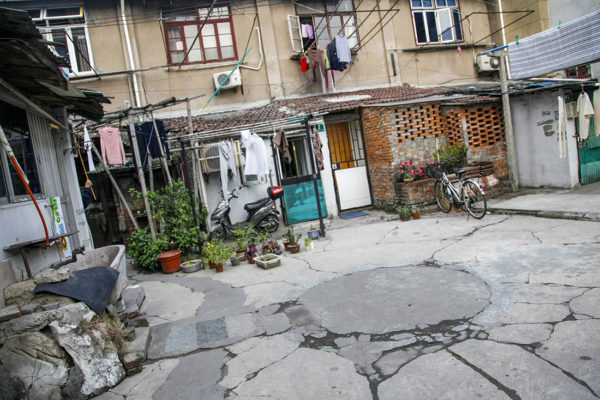
The Japanese military built comfort stations exponentially not only in Shanghai but also places wherever their army moved, centering on Hong Kouchi, a Japanese concession at that time. But there is no trace at all due to the rapid urbanization.
Compared to this reality, the building of Dai-Ichi Salon, the first comfort station, was relatively well preserved. Since the building has been built more than 80 years ago, it was quite old and shabby. Light didn’t goes into the building well and wooden corridor and stairs was making a loud noise as if they were about to collapse. There is no one who can remember the time more than 80 years ago any more in this place which became so-called dosshouse where about 40 household live in one building. They just tell the story they has been heard. Only buildings that witnessed the situation at that time deliver the story of the past, not people.
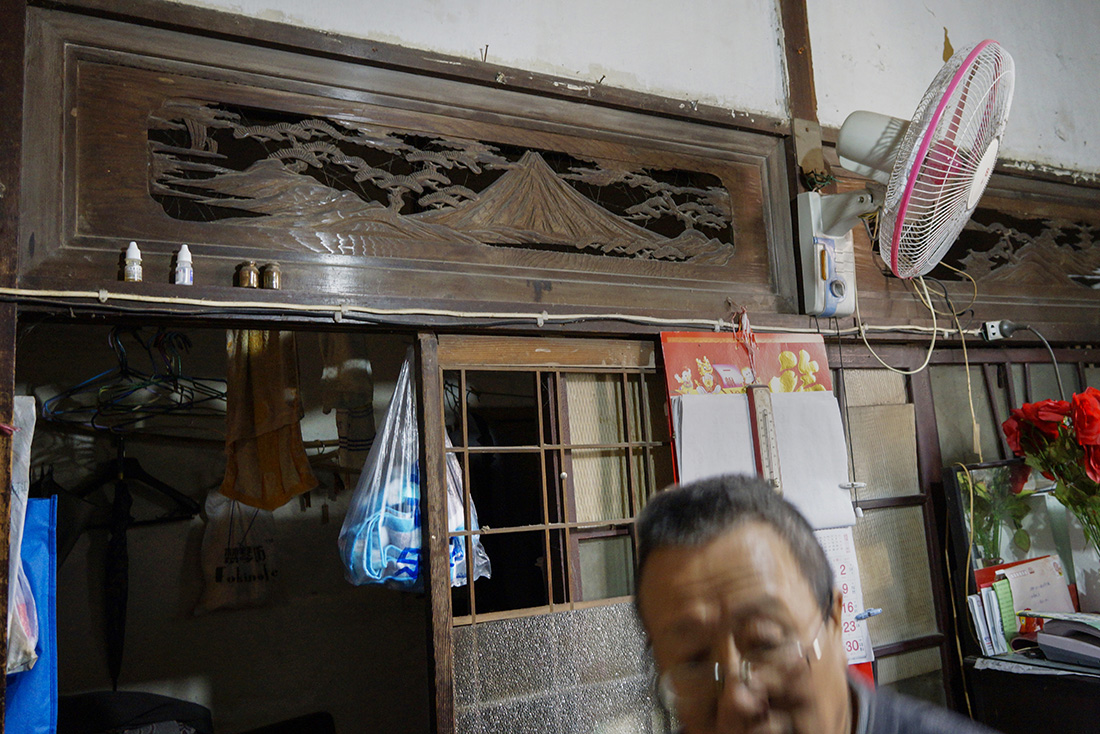
Chrysanthemum pattern in the entrance that symbolizes Imperial House of Japan and Mount Fuji pattern engraved on the window frame of the room tell that Japanese military were stationed in the past.
And the narrow rooms that are attached very closely each other show blood red as if proving that it was the place where Japanese soldiers who enjoyed the victory of the Sino-Japanese War were drunk and ‘excreted’ their sexual desires. It is heartrending to think of the horror they felt in this place where was unfamiliar to them who was teenagers 80 years ago. The sore wound of our history that made Korean peninsula as logistical base after going to war with the ambition of invasion of Japan, which young man was compulsorily commandeered and that requisitioned young women to comfort station are completely left even in Shanghai, a foreign land.
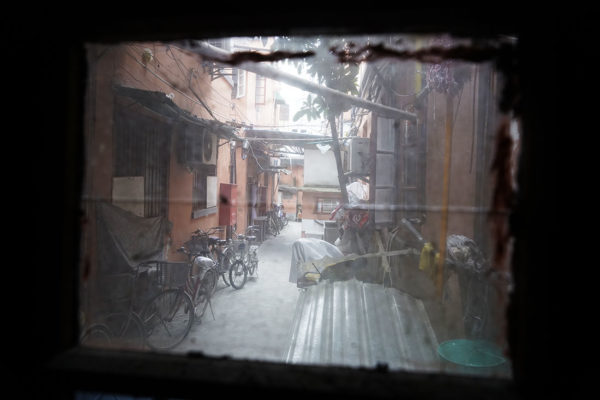
Ji Qing Li in Wuhan
Wuhan comfort station, a bridgehead for inland advance
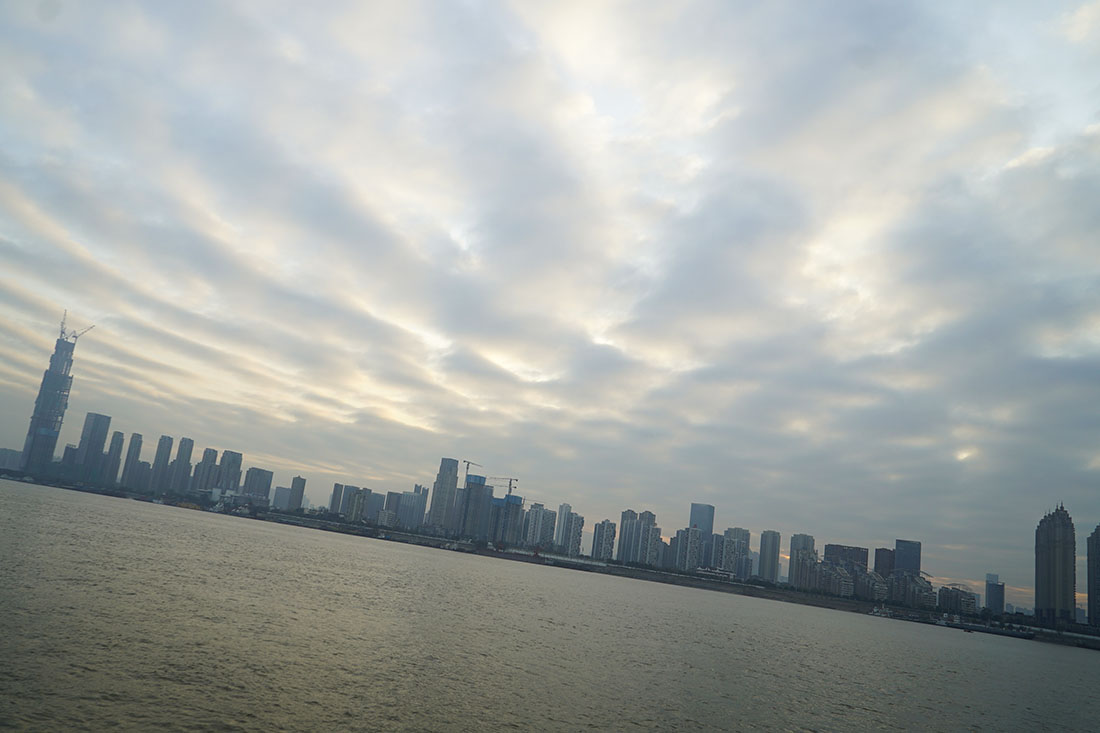
The Japanese military headed for the three Wuhan cities (Hankow, Hanyang, Wuchang) after occupying Xuzhou in May 1938. There was a military command of Jiang Jieshi in Wuhan and it was also four-way transport center. In June, Japanese military launched an attack against Wuhan from three directions, but had a tough war with a persistent counterattack of Chinese military. They finally occupied at the end of October. This war that is called as Wuhan operation in Japan was the largest in scale among the Sino-Japanese War.
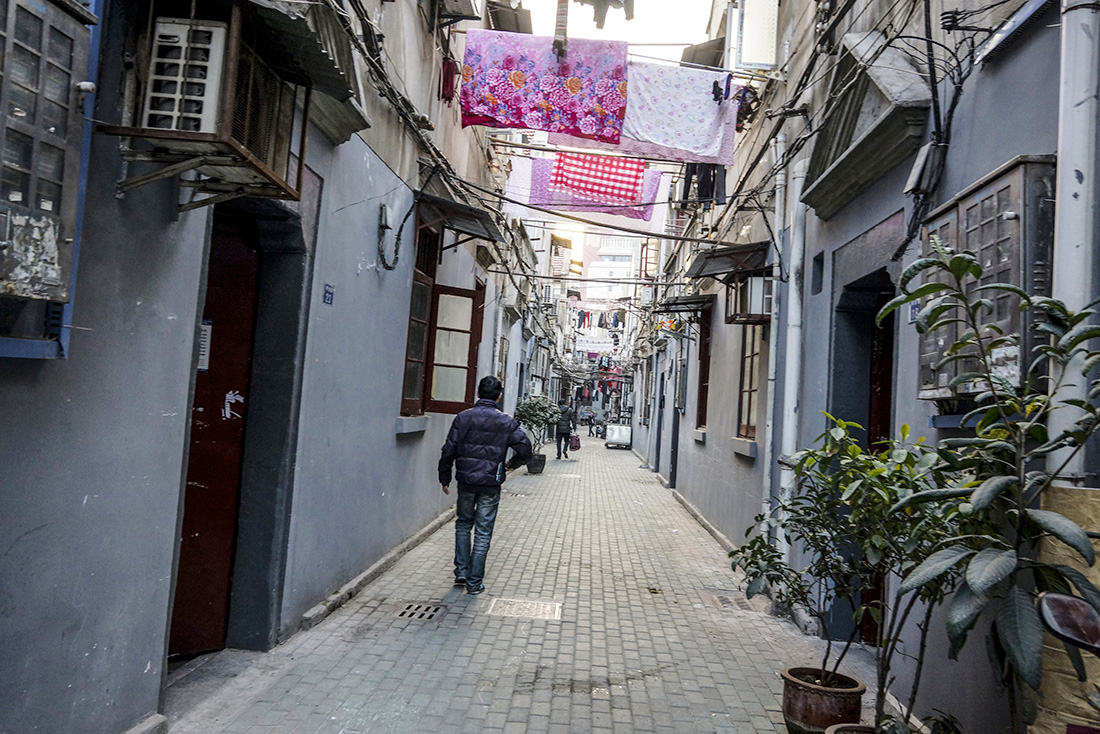
The first place Ha Sang-suk went to was Ji Qing Li in Wuhan. The alley was blocked with iron bars to control the entrance and she lived as comfort women with the name of ‘Kimiko’ in ‘Samsungru’ comfort station. When she was given an injection while getting inspection by army surgeon, she was informed that it was a shot that prevent her from having baby. She had to serve up to 15 soldiers.
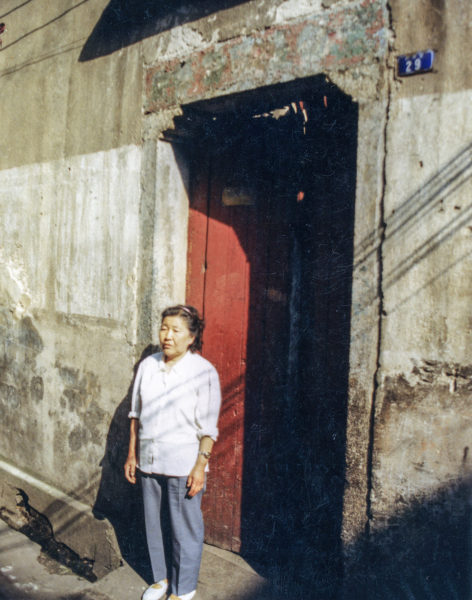
Hankow Japanese Concession
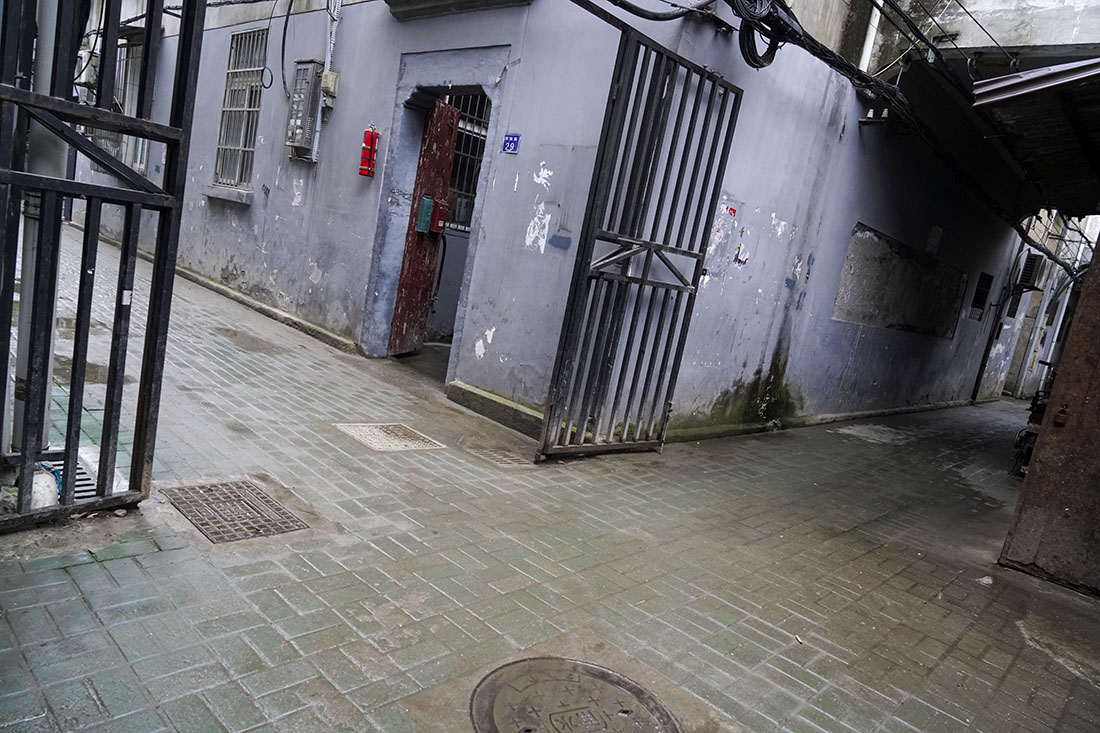
It was one of 5 Japanese concessions in modern China and 1984 Japanese lived there in 1937. Chinese government retrieved it on the first anniversary of Shanghai Incident in 1938, but the concession was revived as Hankow was captured by Japanese military on October 25 of the same year and it was returned to WangJingwel’s Regime which was pro-Japanese regime on March 30, 1943. Japanese concession was located in a remote area and didn’t prosper greatly due to the limit of economic power of Japanese merchants. Japanese banks and companies were placed in British concession and Japanese concession became the center of smuggling and drug trafficking.
The entire area was turned into ruins by bombing of US Army on December 18, 1944, but several buildings remained. There were some buildings demolished in 2003 including shrine, but currently there are western architectures of # 長春街1-4, former Japanese consulate, Japanese concession official residence (#勝利街272), Eighth Route Army Wuhan private residence (#長春街57) and Hankow 新四軍軍部(#勝利街332-352, place name at that time was #大和街26).
China’s first History Museum of Victims
China’s first History Museum of Victims
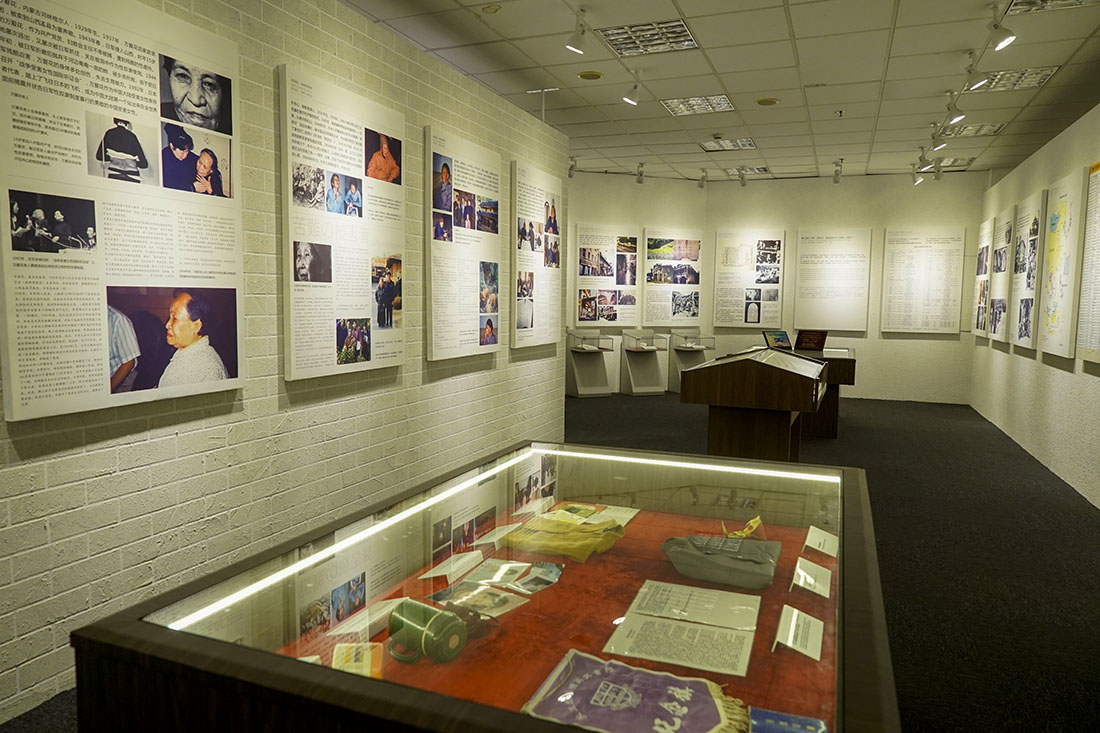
Suzhliang, a professor of a history department, Education College in Shanghai published <the Annals of Japanese Military Comfort Station in Shanghai> that revealed 160 comfort stations located in Shanghai, and established the China’s first History Museum of Comfort Women. He said that he became to concern about comfort women issue when he heard that ‘the first comfort station is in Shanghai’ at an international conference in Japan when he was a researcher at the University of Tokyo, Japan. After returning to Shanghai, he has been focused on research of comfort women for nearly 20 years from 1993. He collected relics related to comfort women in Shanghai and testimonies from victims, and finally opened the History Museum of Comfort Women in 2007.
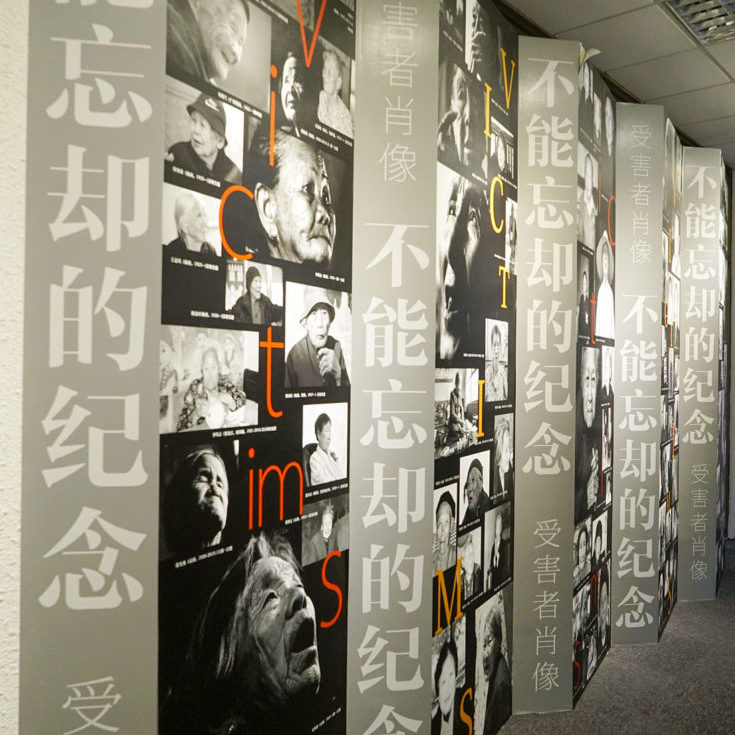
This History Museum, which is operated mainly by testimonies of victims and related books, is a history museum that exhibits Saku (condom), hair combs and shoes used by comfort women. It hasn’t been more than a hundred years yet, but can violation of human rights and violent brutality committed against whole Asia be forgotten from the memory of people who are living today? There should be no present and future that doesn’t settle the past. If crimes committed under the name of militarism of Japan is remembered and we receive a sincere apology, true forgiveness and reconciliation would be made.
Barri
Barri
Born in Sulawesi, Indonesia, Drafted year: 1942, 15y/o, for 3 months
but I didn’t get any medical treatment.
I was finally told to go home after three months later
because I had venereal disease.
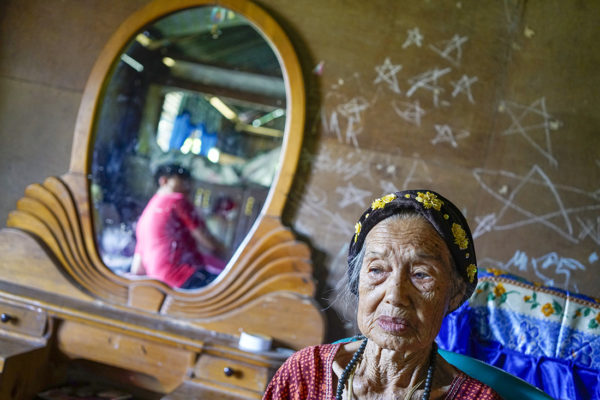
My parents were out to do farming, and I was home alone. Japanese soldiers came and yelled at me to come down from the second floor. I got scared and came down. I was taken to the military base. They were constructing Japanese buildings: men made bunkers, and women leveled the ground even every day.
I was working when a Japanese soldier with a long sword came to me. He touched my hand and brought me to a barak (a house made of bamboo, sometimes it means “comfort station”) and raped me.
I worked in the morning but I was repeatedly caught by two to four soldiers who did it to me in the afternoon. There were several rooms, and there were about ten other women.
가I sometimes slept there, but I usually came back to my sleeping quarter in the evening. Because of the constant rape, my vagina swelled up and it was so painful, but I didn’t get any medical treatment. I was finally told to go home after three months later because I had venereal disease.
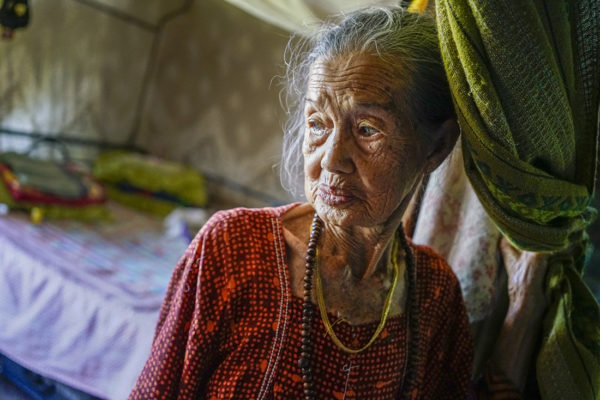
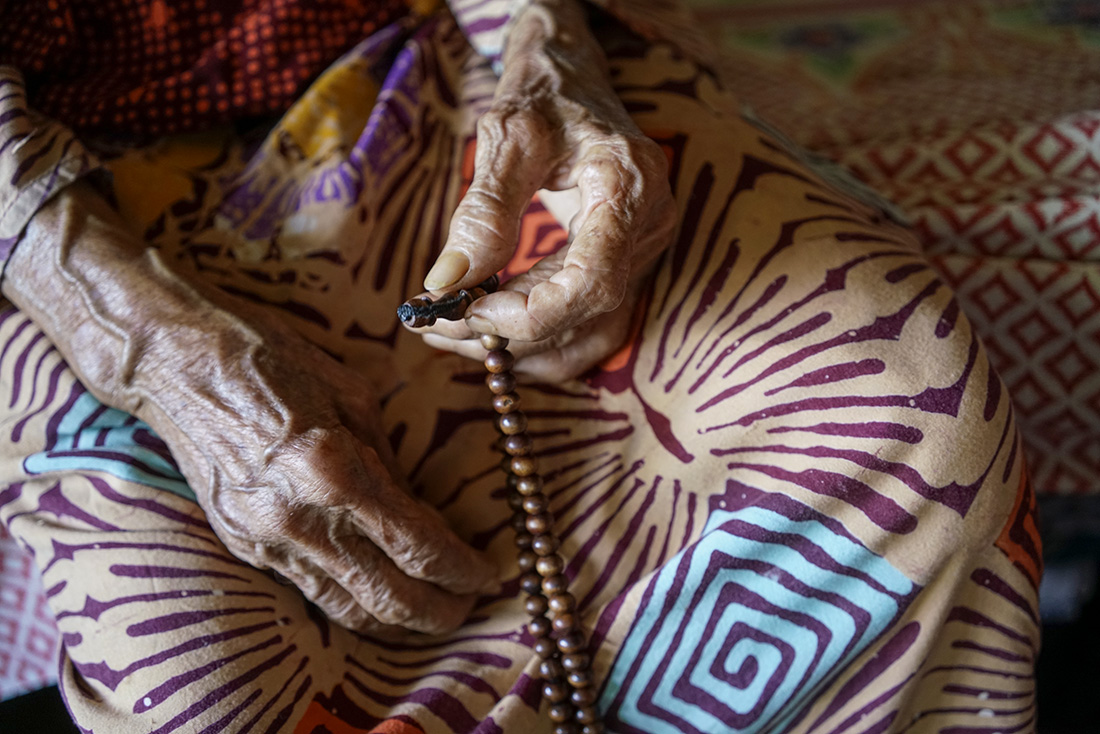
I walked home without getting anything from them. My father got medicine from a doctor from his hometown for me. I only heard that the disease will affect men.
During my life, many men were interested in me, but I was personally scared. I was very scared because of Japanese soldiers.
* This Grandma continuously fiddles with Tasbih (Islamic rosary) during the interview. She spends many hours praying every day. There’s nothing else she can do. This is the only way to soothe her mind.
ZHUO Tian-mei 卓天妹
ZHUO Tian-mei 卓天妹
ZHUO Tian-mei
卓天妹
Born in Hainan, China, Drafted year: 1940, 15y/o, for 4 years
The interpreter who was a traitor
that took me there told me
that I would have to sing
and dance of the Li people黎族
and I could be raped by soldiers at night.
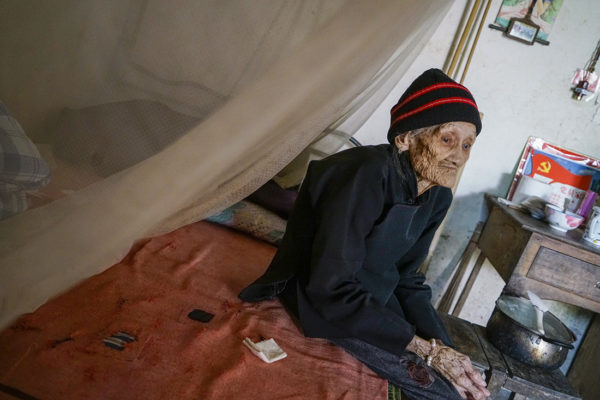
In September, the Japanese army came into town. I was fifteen but they forcibly took me away. There were twenty other women there. The interpreter who was a traitor that took me there told me that I would have to sing and dance of the Li people黎族 and I could be raped by soldiers at night.
After a brutal rape, I bled heavily. The bleeding didn’t stop the next day, and they sent me home.
I had to go to the Japanese base 4-5 times a month. I stayed there for 4-5 days every time I went. I cleaned and drew water during the day, and they forced me to sleep with 3-4 soldiers in the evening.
I saw women who got pregnant or had an abortion. Several Japanese demons raped and killed a woman.
They put boards and divided a large room into three compartments. The door was locked from outside and there were women in each compartment. I spent a year like that.
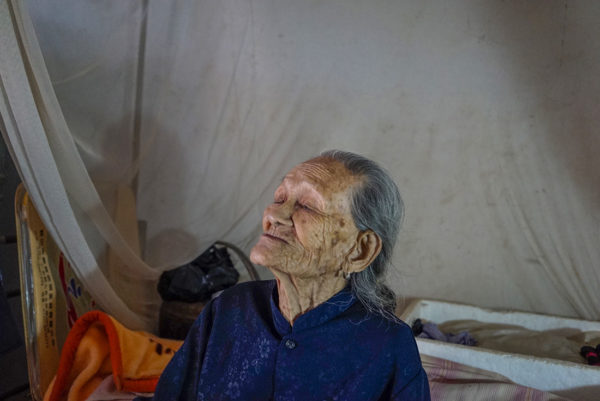
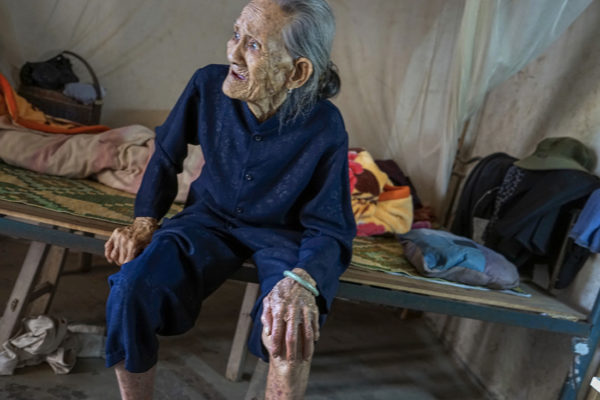
Later, I was sent to a mountain where we collected stones for railroad tracks. I worked on the roads during the day, and I was raped at night.
I spent more than three years doing that before I ran away, hid in the mountains and returned home. I couldn’t meet my parents for 4 years because the Japanese soldiers were monitoring us.
I could be captured again because I ran away. I stayed in the mountains until Japan surrendered and then returned home.
* Her family live in the Li village, farming. Because there is no other houses around her house, there is no place to go to socialize. Probably that’s why she was very welcoming even if I was a stranger.
Carminda Dou
Carminda Dou
Carminda Dou
Born in Tilomar, East-Timor, Drafted year: 1942, 16y/o estimates, for 3 years
Suddenly began to count ‘イチ、ニ、サン(1, 2, 3)’ in Japanese.
The family tells her to continue talking,
but she no longer speaks.
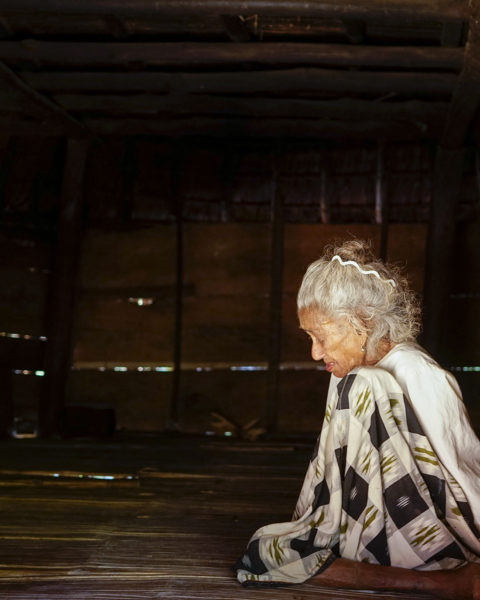
With a crooked back and small appearance, the victim looked over 90 years old.
Having Alzheimer’s for a long time, her memories were gone and it was difficult to carry out even a normal conversation.
Luckily, I was able to hear some of her story from her younger sister Martina, who was also living with her.
Though they were sisters, they had grown up in different places since they shared the same mother, but had different fathers.
Around when the Japanese troops came in, the two sisters were both taken away at a similar time, but were unable to hear from each other.
According to the younger sister, the Japanese army made their way towards her sister’s place, where they forced her away. Then for 3 years before the war ended, she was forced under sexual slavery.
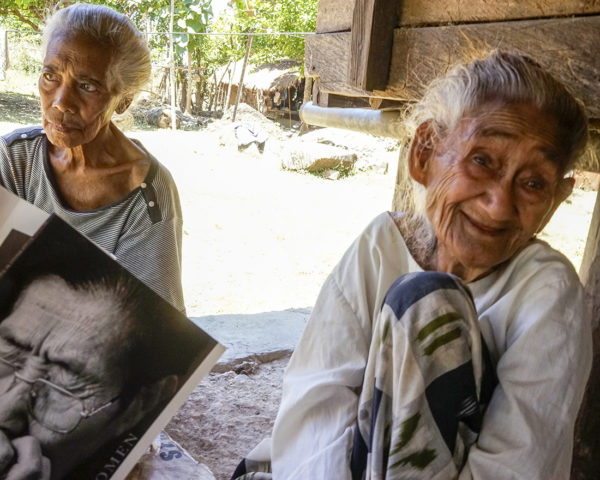
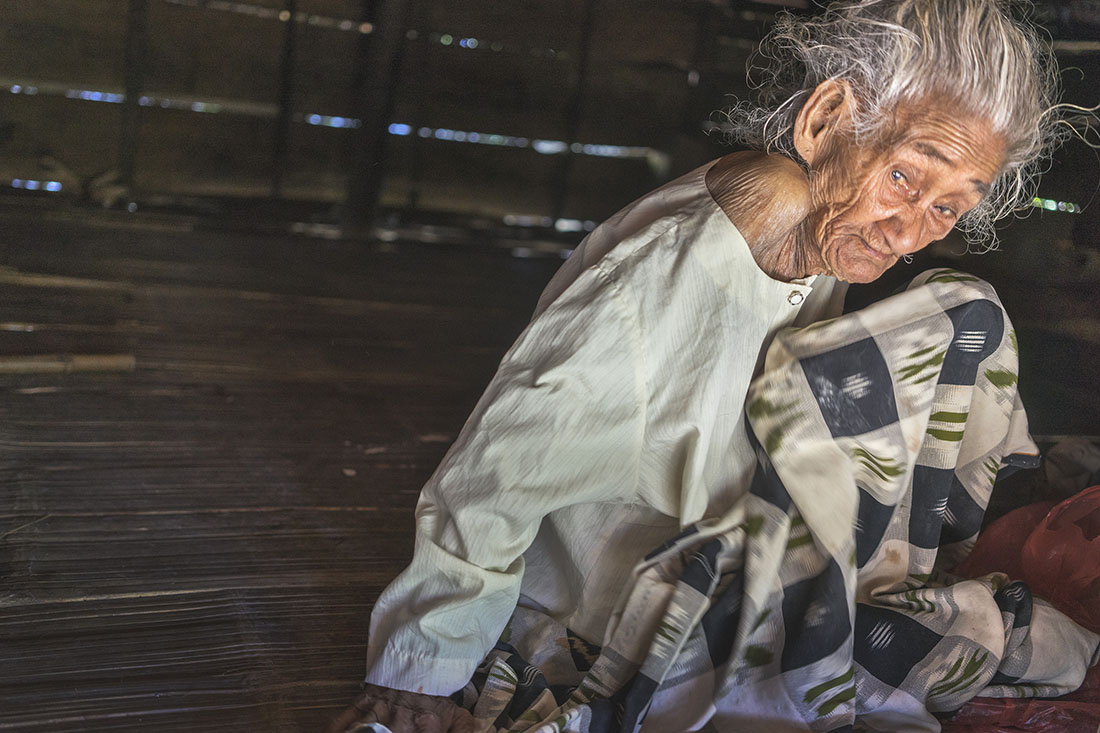
Throughout the interview, the elder sister sat next to her sibling and simply smiled. In the middle, she suddenly began to count ‘イチ、ニ、サン(1, 2, 3)’ in Japanese. The family tells her to continue talking, but she no longer speaks.
As her sibling begins to tell of the atrocities of the Japanese troops, the older sister’s smiling face begins to contort. The victim has already lost so many memories, but she cannot erase the pain that remains in her heart.
The sisters were 4 years apart in age, making it possible to reason that the elder sibling was born around 1926.
* With a high door sill and small entrance, the house was difficult for me to even enter. I was worried about the grandma, who had difficulty walking, moving around this dangerous area. Light was unable to properly enter as everywhere was sealed, but she spends her days eating and resting in her room.
Minah
Minah
Born in Sulawesi, Indonesia, Drafted year: 1942, 15y/o, for 2 years
About 4-5 of them came every day.
I got pregnant twice there,
but miscarried both times.
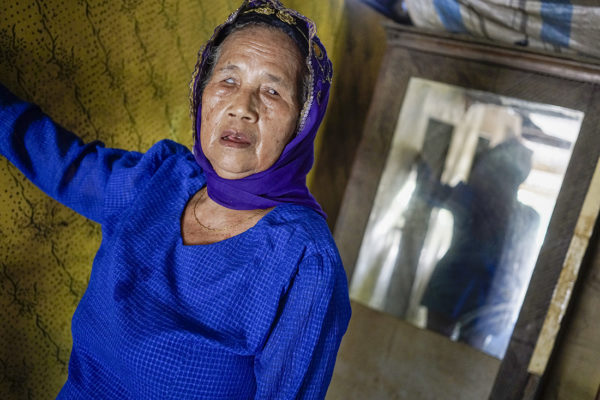
I was on my way to work at a coffee farm with two friends of mine. Suddenly, Japanese soldiers forced us into a vehicle, saying that we had to go somewhere to do farming. There were already several women in the vehicle. They took us to a remote place, washed us, changed our clothes, and sent each of us into one of the rooms.
Then, five soldiers came into the room one at a time, and raped me. About 4-5 of them came every day. I got pregnant twice there, but miscarried both times. Japanese doctors, 1 male and 1 female, gave me medical treatment and medicine, but it didn’t help at all but made me feel more pain.
One day, after being raped by five soldiers, and my vagina swelled up and it was extremely painful. Then, another soldier was about to do it, I felt so much pain, so I screamed. He got so angry and started punching me until my eyes bled.
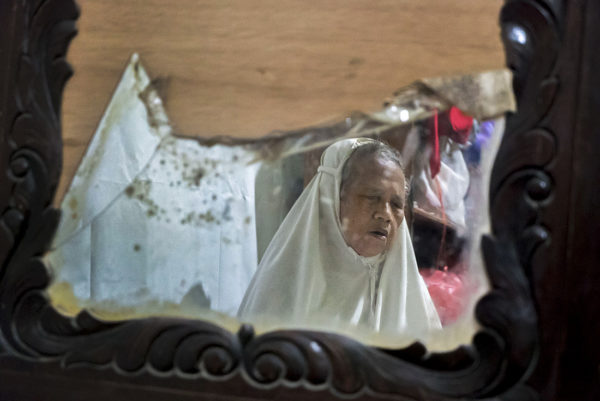
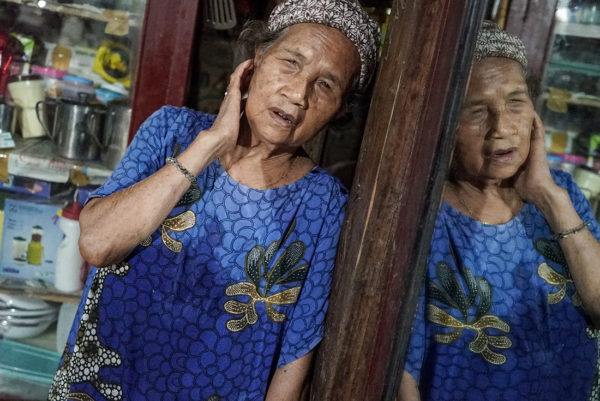
Only then, the soldier told me to go home. I walked along the mountain path for 8 days and returned home. Since then, I can’t see well with my left eye, and I completely lost vision in my right eye. I still see a doctor for my eyes these days.
Besides, I have difficulty breathing, and whenever I think about those days, I get a headache. I truly want the Japanese government to apologize for those horrible things Japanese soldiers did to me.
* This Grandma is a relative of Darmawi who supports the victims in Sulawesi. She lived alone until 2015, but as her eye vision degenerated, she now lives with Darmawi’s sister.
LI Mei-jin 李美金
LI Mei-jin 李美金
LI Mei-jin 李美金
Born in Hainan, China, Drafted year: 1940, 16y/o, for 3 months
Rumors went around in the village
that I suffered such thing.
I was ashamed as a woman.
..... .they would think I was a traitor, a Japanese prostitute.
When the Japanese military invaded our village, I ran to the hill with the villagers. I was captured on my way back home, thinking that the Japanese soldiers had left. Everyone was mobilized to create an airfield. People were made to live in wood houses in the mountain, but I was made to live in a thatched warehouse, 200 meters away.
Two, three soldiers came at night holding guns. I was afraid and couldn’t resist. There were five, six other women, but we couldn’t talk or look at each other because of the surveillance.
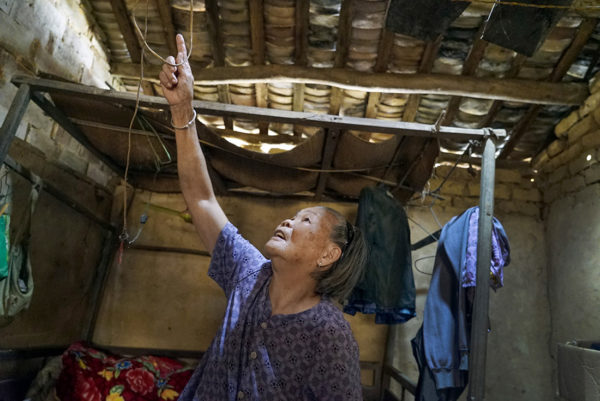
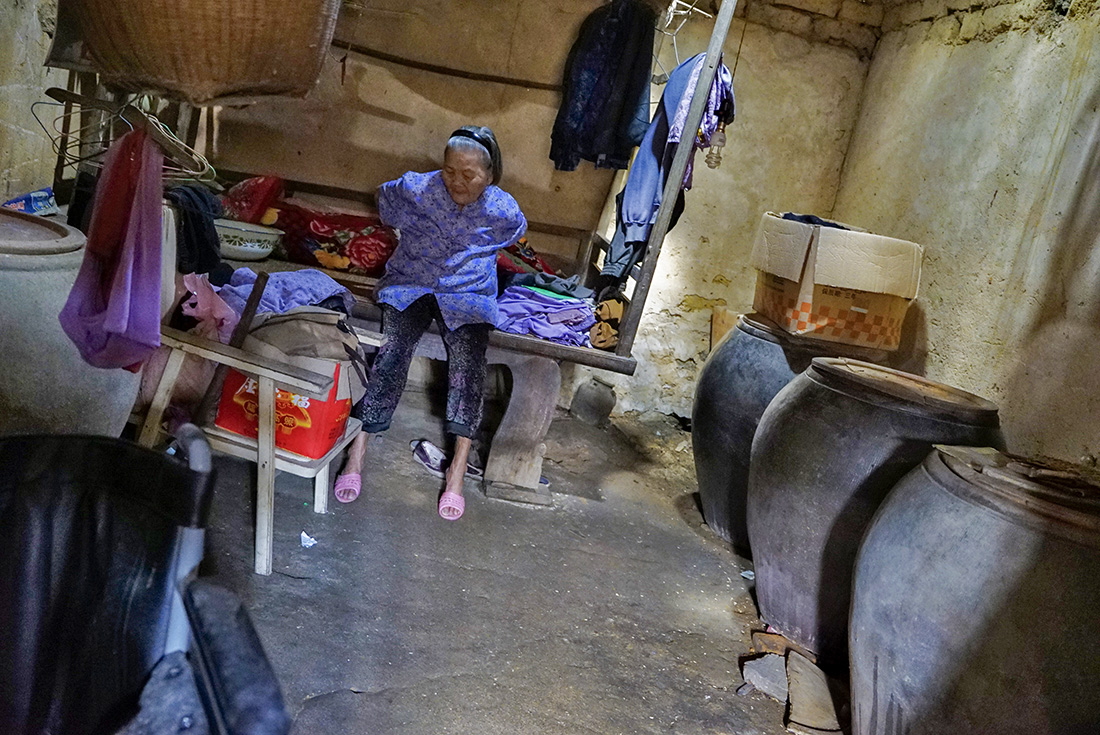
They had men and women work separately. Had we met them during the daytime, we could’ve tell them about someone coming and raping us at night. We were fed rice gruel or rice in salty water only.
A newlywed couple also came to work, but the husband died. I pretended I was a family member of the couple to get in the funeral procession and escaped.
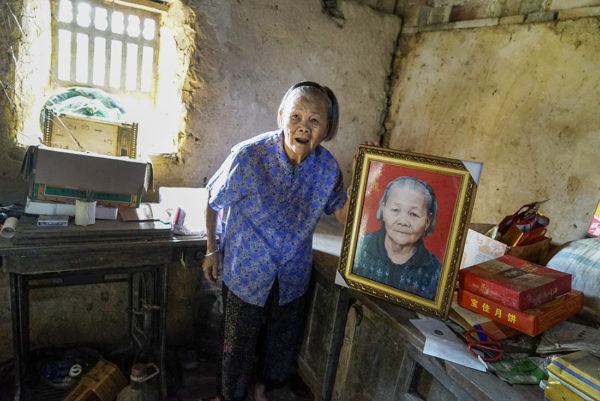
Rumors went around in the village that I suffered such thing. I was ashamed as a woman. People considered me shameless since they would think I was a traitor, a Japanese prostitute.
My back hurts, and I’m suffering from arthritis. I get tense with indignation when I see Japanese people. If another war breaks out with the Japanese, I’ll be the first one to go out and fight.
* Until a few years ago, I could see several thin beams of light coming down from the ceiling. Now with the recent repair, it doesn’t leak anymore. However, the cement is still exposed that bad smell and poison seem to rise when it’s damp and dank. Next time, I will paper the wall as a final touch.
KIM Bog-deug 김복득
KIM Bog-deug 김복득
KIM Bog-deug
김복득
Born in South Gyeongsang, Korea, Drafted year: 1939, 21y/o, for 7 years
I sprayed powder down there
to prevent sexually transmitted disease,
and got a shot #606 in the forearm.
It was painful.
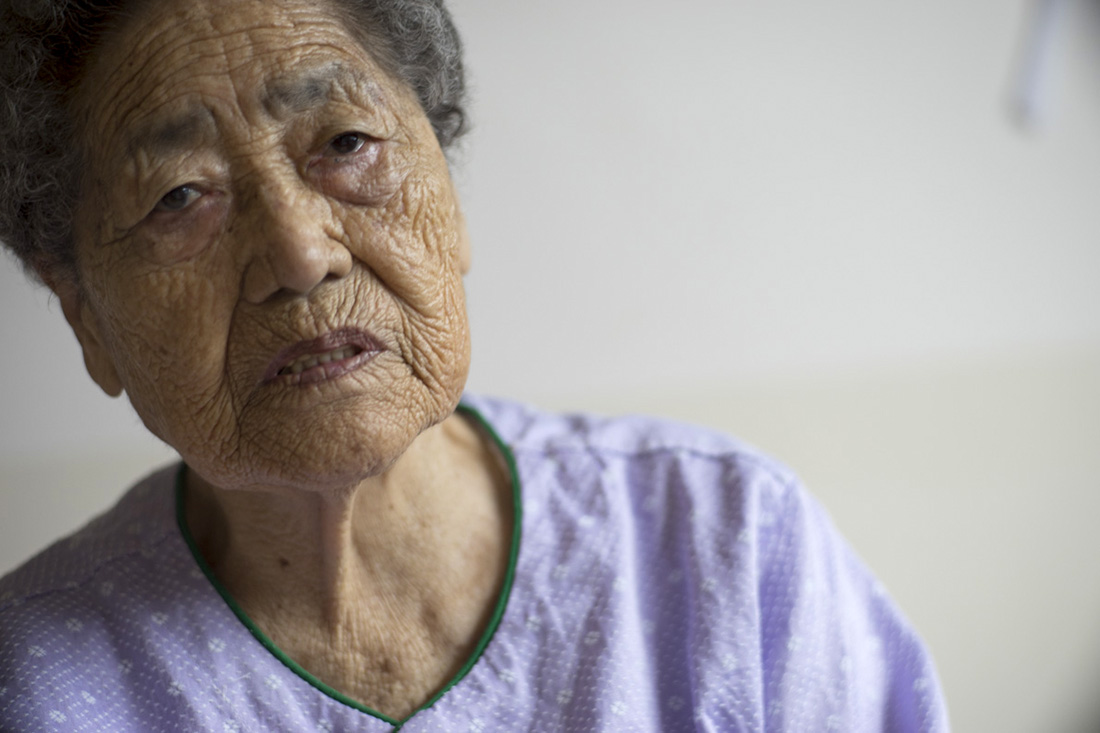
We were poor but I grew up in my parent’s love. I worked at a factory that made nets when I was young. On my day off, I was waiting for a boat to go to my aunt's house in an island.
A man approached and forcibly took me to Busan, saying that he will help me make money. I couldn’t even tell my family. I was boarded a ship
and the place I arrived was Dalian大连, China. There were ten small, shabby rooms lined up. I was put into one of them. I was scared.
Suddenly, the door opened and a soldier in a yellow military uniform came in. He swooped on me. Soldiers lined up in front of my room every day.
At least 10 came a day. I sprayed powder down there to prevent sexually transmitted disease, and got a shot #606 in the forearm. It was painful.
3 years later I was sent to the Philippines. Not only were there Korean women, but also 1-2 Japanese women, too.
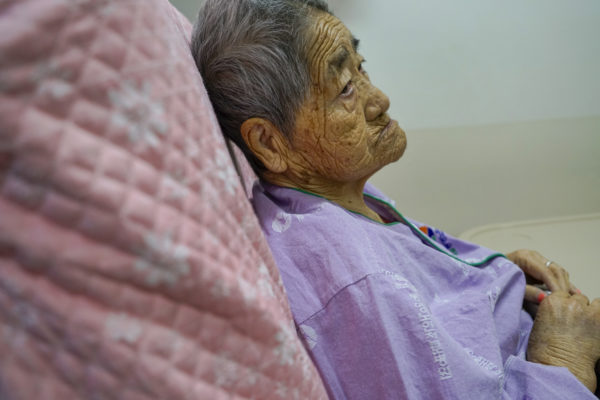
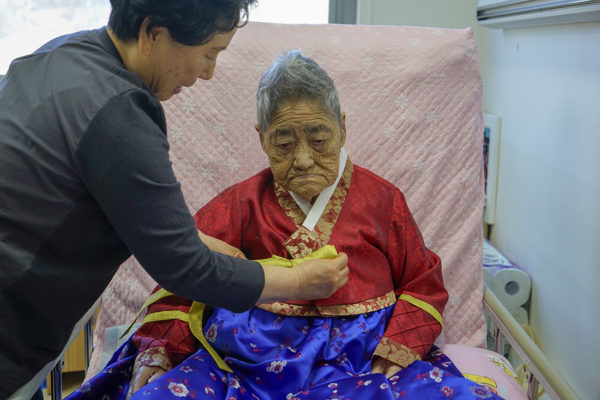
When the war was over, I came back to Nagasaki on a Japanese warship. From there, I came home through Busan. My mother had passed away,
and my life in my hometown was difficult because rumors went around that I was a “comfort women” and people gave me sharp looks. I became a concubine, but the first wife understood my situation.
* In 2000, I met 4 Grandmas in Tongyoung통영, but now, Bogdeug Kim is the only one left. Not long ago, she had her 100th birthday party at the nursing home. Even then, she prepared to go out, doing her own makeup.
Laurinda Dapuhalek
Laurinda Dapuhalek
Laurinda Dapuhalek
Born in Beco, East-Timor, Drafted year: 1942, 12y/o, for 3 years
The soldiers called me
'Tazuko' instead of my real name.
They fed me, but didn’t pay me at all.
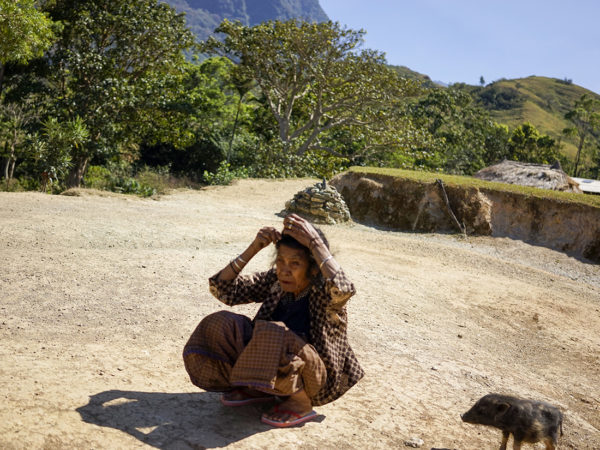
I don’t remember exactly how old I am. When I was young, I lived with my parents and two older sisters. One day, Japanese soldiers came into our village as they were making roads.
They captured all the pretty girls while shooting their guns. I was about 12 years old then. My two sisters were not taken because they were married.
They didn’t make me work. There were many soldiers but we were the only two women. I slept with many soldiers every day. There was a doctor who examined me. I never became seriously ill, and he gave me medicine when I was sick or had a fever.
The Japanese soldier put a tattoo on my arm. It said '多鶴子' and 'JAPON ... ', and I didn’t know what that meant at the time.
The soldiers called me 'Tazuko' instead of my real name. They fed me, but didn’t pay me at all.
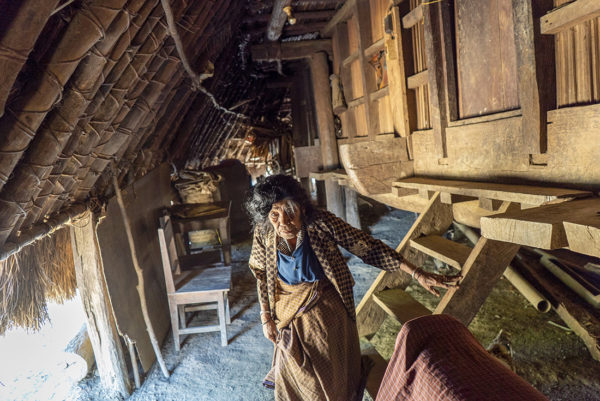
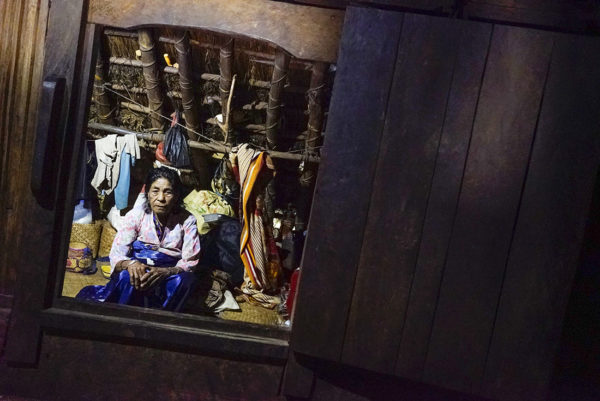
I was released after 3 years when the war ended. When I think about back then, I feel bad and I get headache.
Someone of high status in Japan should come and see it.
My old heart hurts and they have to compensate. I wish they give me money and clothes.
* She lives 200 kilometers from Dili, and it took us over 10 hours by car to get there. She lives in upstairs of a traditional, tall house where she keeps livestock such as pigs and chickens downstairs. The house is dark because there’s no electricity. Recently, there has been some foundation work to build a house with cement near this house.
